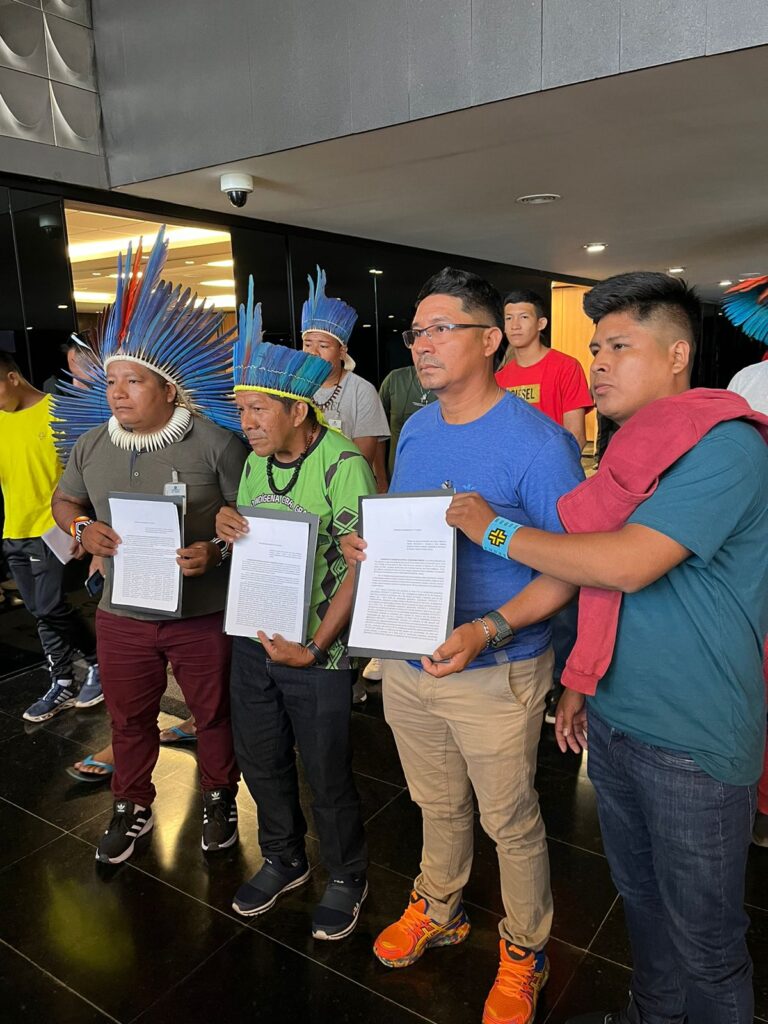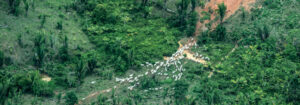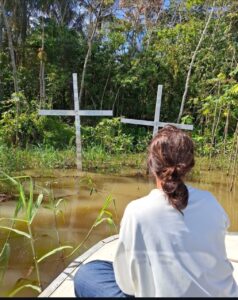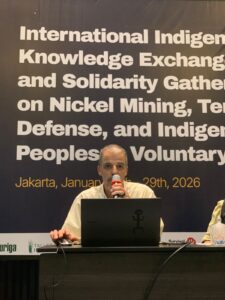Declaratory ordinances were issued for the Cobra Grande, Maró and Apiaká do Pontal e Isolados Indigenous Lands.
After six years without any indigenous land being declared by the Brazilian government, finally on 5 September, Amazon Day, Justice Minister Ricardo Lewandowski signed decrees for three indigenous territories, including the Apiaká do Pontal e Isolados Indigenous Land, in Mato Grosso, where the Apiaká and Munduruku peoples live and where there are records of isolated groups. The boundaries of the Cobra Grande (Arapium, Jaraqui and Tapajó peoples) and Maró (Borari and Arapium peoples) Indigenous Lands, both in Santarém, Pará, were also declared.
‘Today we are taking a definitive step towards the legitimacy and just recognition of these lands. From now on, there's no more argument. FUNAI will carry out the physical demarcation to be followed by a symbolic act with President Lula,’ said Lewandowski in a ceremony with indigenous leaders at the Palace of Justice.
The declaratory decree is one of the fundamental stages of an indigenous land's demarcation process, it defines the land's boundaries after both administrative and judicial disputes have been settled. The ordinances are the starting point for concrete demarcations, with the establishment of physical landmarks and the removal of invaders, for subsequent approval by the President.
The signing of these declaratory ordinances is a positive sign from the executive at a time when indigenous territorial rights are threatened by the conciliation process promoted by Federal Supreme Court (STF) Justice Gilmar Mendes and by Law nº 14.701, passed by Congress, which introduced the Marco Temporal already declared unconstitutional by the STF itself.
The ordinances also represent an important step forward in protecting around 1 million hectares of forests preserved by the indigenous peoples who live in them, at the same time that thousands of fires are spreading uncontrollably throughout the Amazon rainforest, believed by the environmental authorities to be criminal with the aim of illegal land grabbing.
* Marco Temporal - Marco Temporal refers to the legal theory according to which the original/indigenous peoples can only demand the demarcation of lands where they were already living on October 5, 1988, the date Brazil’s present Federal Constitution was enacted.




